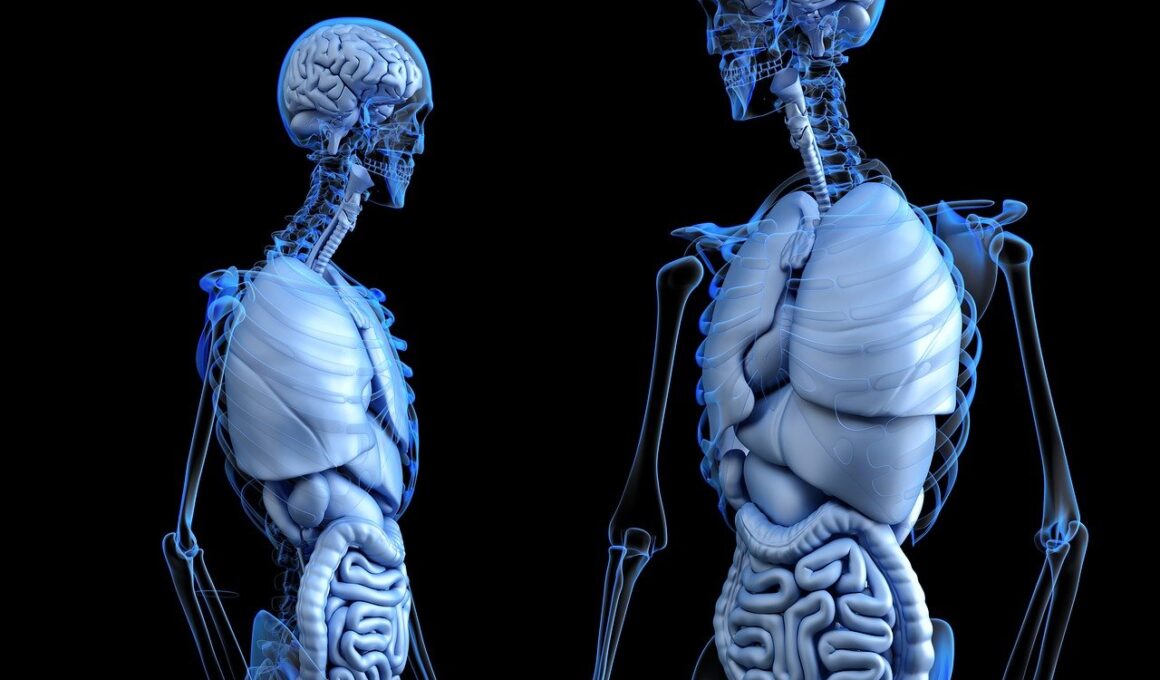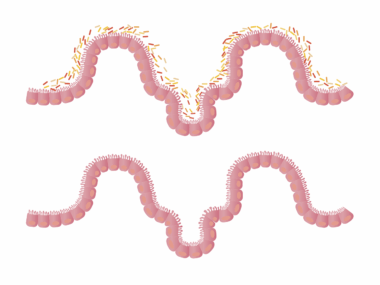How to Maintain Gut Health After a Detox Diet
After completing a detox diet, it’s essential to focus on maintaining gut health. The digestive system requires a healthy balance of beneficial bacteria, and the foods you consume can significantly impact this balance. Incorporating fiber-rich foods such as fruits, vegetables, and whole grains can help promote the growth of healthy gut flora. Probiotics, found in yogurt and fermented foods, are also vital for restoring and maintaining gut health. These powerful microorganisms can enhance digestion and immunity. Additionally, staying hydrated is crucial. Drinking an adequate amount of water can facilitate nutrient absorption and ensure your digestive system functions effectively. Dehydration can lead to constipation and decreased digestive efficiency, so aim for at least eight glasses of water a day. Furthermore, reducing processed foods, sugars, and unhealthy fats post-detox can help keep your gut flora happy. It’s important to listen to your body and understand how different foods affect your digestion. Implementing small changes gradually will yield more sustained results than drastic alterations. Overall, the right post-detox diet can ensure your gut health thrives and supports your overall wellbeing.
Maintaining gut health is a lifelong commitment that extends beyond the detox experience. One significant aspect to consider is your overall lifestyle. Regular physical activity brings numerous benefits, including improved digestion and enhanced circulation. Exercise promotes the efficient movement of food through your intestines, preventing constipation and encouraging a healthy digestive tract. Moreover, managing stress levels is crucial for gut health. High-stress environments can disrupt the gut microbiome, leading to various digestive issues. Incorporating relaxation techniques such as yoga or mindfulness meditation can help alleviate stress and thus, contribute positively to gut health. You might also consider supplements that support digestion specifically. For instance, digestive enzymes can assist in breaking down food efficiently. Additionally, you may explore various herbs and plant-based remedies known for their gut-soothing properties. For those keen on natural solutions, consider incorporating ginger, peppermint, or fennel into your diet, as these have benefits for digestion. Lastly, be aware of food intolerances or allergies, which can negatively impact your gut health. Consulting with a healthcare professional can help tailor your diet to your body’s specific needs.
Engaging in a balanced diet post-detox is particularly important for sustaining a healthy gut. Foods that are rich in antioxidants, such as berries and leafy greens, are excellent choices that not only support your digestive system but also aid in overall wellness. By consuming a variety of different colored fruits and vegetables, you’ll get a range of nutrients that contribute to a robust immune system. Additionally, omega-3 fatty acids found in fatty fish, walnuts, and flaxseeds can help reduce inflammation in the gut. Inflammation can disrupt gut function and the microbiome balance, so including these foods regularly can be beneficial. Fermented foods like kefir, kimchi, and sauerkraut should also be staples in your post-detox diet. They are rich in probiotics that help replenish lost gut bacteria during your detox. Consider meal prepping to maintain consistency in your diet. Preparing meals ahead reduces the temptation to default to convenient, unhealthy options. Make sure to incorporate a mix of macronutrients and micronutrients, which will aid in proper digestion and overall gut functionality. Taking care of your gut will promote overall health, which is the ultimate goal.
Listening to Your Body’s Needs
After your detox, it is crucial to remain attuned to your body’s specific needs. Each person’s digestive system responds differently to changes, and maintaining flexibility in your approach to diet can make a significant difference. Pay attention to how your body reacts to certain foods, and keep a journal to track any symptoms or reactions. This can help identify foods that may trigger discomfort or digestive distress. Finding a balance is key; some people may thrive on a higher-carb diet while others may need more proteins and fats to feel optimal. Listening to your body can help you settle into a personalized eating plan that supports gut health. It’s also important to introduce new foods gradually after detox. This allows your digestive system to adjust and lets you assess how each food affects your body. Consider diversity in your diet; widely diverse diets are linked to healthier gut microbiomes. Additionally, ensure that your food sources are high-quality, organic, and free from chemicals that could impact gut bacteria negatively. This attentive approach will provide a strong foundation for maintaining excellent gut health long-term.
Besides dietary choices, incorporating mindful eating practices is another effective strategy to maintain gut health post-detox. Eating slowly and mindfully allows better digestion since it gives your body the time it needs to signal fullness and recognize hunger cues. When you rush through meals, you’re more likely to indulge in overeating, which can overwhelm your digestive system. Focus on enjoying your food, assess each bite, and consult with your body to understand what feels good. Meal timings can also significantly affect digestion; try to eat meals at regular intervals. This helps regulate your body’s digestive enzymes and promotes better gastrointestinal health. It’s generally recommended to avoid eating too late, as late-night meals can interfere with digestion and nighttime recovery. Also, try to avoid combining large amounts of different foods within one meal. For instance, mixing fats and proteins can be taxing on digestion. Allowing your body adequate time to digest between meals helps it function more efficiently. Overall, adopting mindful eating habits can help improve gut health and ultimately contribute to a better state of wellbeing.
Tips for Long-Term Gut Health
For sustainable gut health, it’s beneficial to adopt certain practices that become part of your daily routine. Regular probiotics consumption should be prioritized, as beneficial bacteria that improve gut flora are essential for your digestive system. You might even consider a probiotic supplement if dietary sources are insufficient. Additionally, incorporating prebiotic foods such as onions, garlic, and asparagus can nourish beneficial gut bacteria already present, helping them thrive. Eating a variety of whole foods contributes to your gut health and overall wellness. Processes such as excessive cooking or over-preparation can destroy vital nutrients found in raw vegetables and fruits. Take the opportunity to consume fresh produce when possible. Lastly, minimize alcohol intake since it can harm the gut lining, disrupt gut bacteria, and contribute to digestive issues. Aim for moderation when consuming alcohol. Creating a friendly environment for gut microorganisms will help keep your system in balance. Remember, it’s not just about cutting out bad foods, but rather adding beneficial elements that enhance your diet’s quality and variety for positive gut health.
Finally, remember that consistency plays a vital role in maintaining gut health after a detox diet. It’s essential to think of gut health in terms of long-term lifestyle changes rather than short-term fixes. Establishing a routine that incorporates nutritious meals, physical activity, and stress management can lead to lasting benefits. You are likely to notice improvements not just in your digestion, but in your overall health, mood, and energy levels as well. A well-functioning gut significantly affects your immune function and mental wellbeing. Monitoring your gut health regularly through check-ins and assessments with a healthcare provider can also ensure that any issues arise early before they escalate. Many individuals benefit from keeping food diaries or using health applications to record their experiences and insights. Consider seeking support from a nutritionist or dietitian, particularly if you’re transitioning into new dietary regimens. They can guide you towards making informed and suitable dietary choices tailored to your needs. Commitment to your gut health after detoxing requires effort. However, the outcomes serve your body and mind well, leading to a vibrant and healthy life.





